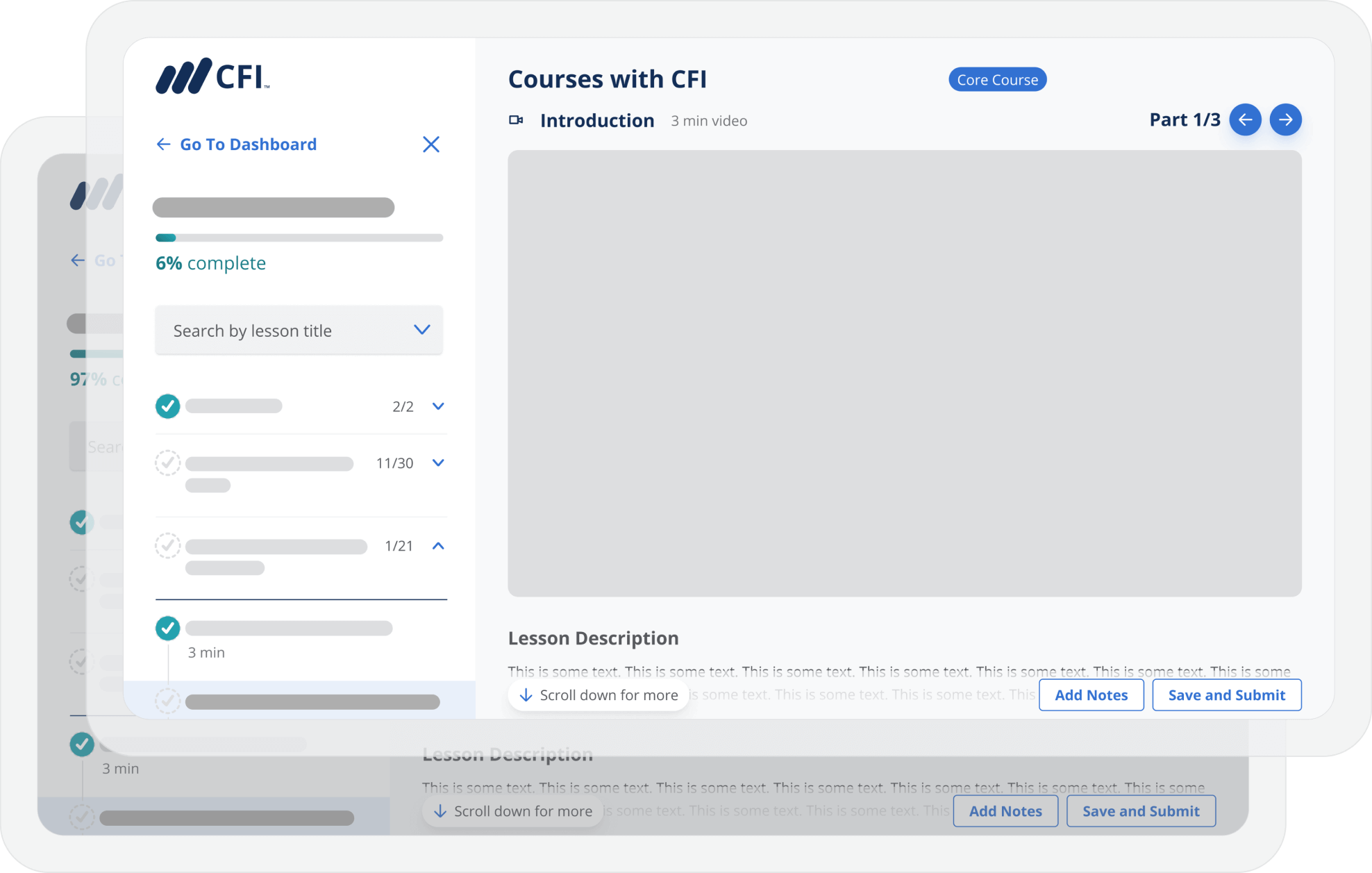Career Resources From CFI
Topic Overview
9 courses
Consisting of over 420+ lessons
40+ interactive exercises
Learn by doing with guided simulations
Expert Instructors
Learn from the very best
New courses monthly
On need-to-know subject matter
Blockchain certificates
To verify your financial skills
500,000+ 5 star ratings
Best-in-class training, as rated by you
Find the Right Career Course
Top Career Courses
Browse all coursesWhy Learn With CFI?
CFI is the leading learning and productivity resource for finance and banking professionals for a reason.
Focused on practical skill-building guided by experienced professionals, CFI courses are designed to help you learn by doing and gain real-world knowledge you can put to work right away. On-demand lessons mean you can go at your own pace and learn anytime, from anywhere, and range from beginner to advanced for professionals at any level.
And because CFI memberships offer unlimited access across programs and specializations, as well as free career resources, you can become an expert in any area of finance you choose.
Over 75% of CFI learners report improved productivity or competency within weeks.
With CFI Career Courses, You Can Discover:
Who Should Take CFI Career Courses?
Investment professionals
Management consultants
Financial analysts
Registered Provider: National Association of State Boards of Accountancy
All courses are accredited by the Better Business Bureau (BBB), CPA Institutions in Canada, and the National Association of State Boards of Accountancy (NASBA) in the US. Most courses qualify for verified CPE credits for CPA charter holders.
Courses include video lessons, quizzes, and final assessments.









